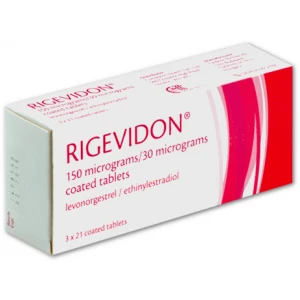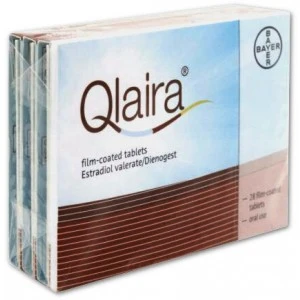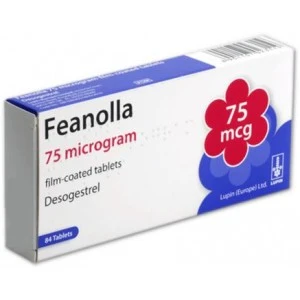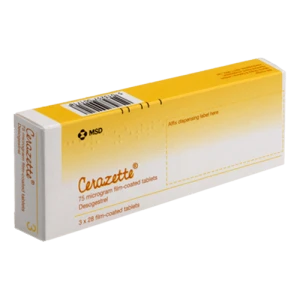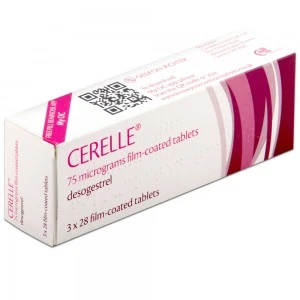How is the mini pill different from the combined contraceptive pill?
 There are different types of contraceptives on the market, and none is more popular than the pill. With a 99% efficacy rate when used correctly, it is a convenient contraception solution for many women.
There are different types of contraceptives on the market, and none is more popular than the pill. With a 99% efficacy rate when used correctly, it is a convenient contraception solution for many women.
Unfortunately, choosing the right contraceptive pill to go on can feel like a minefield. Many people feel confused when faced with the different forms the pill can take. In addition to the numerous brands to consider, there is also the question of which type of pill to take.
Most people know that there are two different types of contraceptive pill – the combined pill, and the progestogen-only, or “mini”, pill. But do you know the difference between the two? Would you know which is better suited for you?
In this article, we'll explore the differences between these two popular contraceptive options. Remember, you should always discuss your contraceptive options with your doctor to ensure that the one you choose is safe for you.
The Combined Pill
The combined pill is the most commonly used form of birth control. It is an oral contraceptive that uses a combination of the hormones oestrogen and progestogen to prevent unwanted pregnancies.
It works by stopping the ovaries from releasing eggs each month. Progestins in the tablet thicken the mucus in the cervix, making it more difficult for sperm to travel, and thin the womb lining, making it more difficult for the eggs to implant themselves.
Combined contraceptive pills are oral tablets that are either taken every day or for 21 straight days, which can then be followed by a week off where a period-like bleed takes place. New FSRH guidance suggests this may not be required, however.
Zoely Combined Pill
- Regulates periods
- Stops 99% of pregnancies
- Easy to take daily tablet
Rigevidon Pill
- 99% reliable contraception
- Relieves menstrual cramps
- Available from a UK-registered pharmacy
Qlaira
- Taken everyday
- Eases menstruation
- 99% proficient at preventing pregnancy
The Mini Pill
The mini pill only contains a single hormone, progestogen. Like the combined pill, it prevents unwanted pregnancies by thickening the mucus in the cervix to prevent sperm from travelling. It also thins the womb’s lining to stop fertilised eggs from attaching and growing there.
The mini pill is taken orally every day with no breaks. It must be taken at the same time every day for maximum efficiency. Depending on the brand, the window for taking the mini pill can be between 3 and 12 hours – always check with your doctor if you are unsure.
Feanolla
- Effectively prevents unwanted pregnancies
- Prevents ovulation
- Safe to use while breastfeeding
Cerazette Desogestrel 75mcg Mini-Pill
- Almost 99% effectiveness
- Suitable if you are sensitive to oestrogen
- Can be used whilst breastfeeding
Cerelle
- Almost 99% effectiveness
- Suitable if you are sensitive to oestrogen
- contains progestogen desogestrel
What’s the Difference?
 The lack of oestrogen in the mini pill makes it a better choice for those who can’t take oestrogen. For example, women over the age of 35 and/or who smoke are not recommended to take the combined contraceptive pill, but may instead be offered the progesterone-only pill.
The lack of oestrogen in the mini pill makes it a better choice for those who can’t take oestrogen. For example, women over the age of 35 and/or who smoke are not recommended to take the combined contraceptive pill, but may instead be offered the progesterone-only pill.
Some women may experience intolerable side effects while on the combined pill. You should always report any side effects to your doctor, as some can be detrimental to your health. Your doctor may advise you to try a different brand of combined pill or switch you onto a mini pill, which may have a lower risk of side effects.
Combined contraceptive pills have been observed to help reduce period cramps and improve acne in some women. In fact, the contraceptive pill Dianette is often prescribed to women of childbearing age who have acne which hasn't responded to over-the-counter treatments. Still, it isn't often prescribed as a contraceptive pill due to the associated risk of side effects.
The mini pill may be recommended for women who suffer from migraines, as a drop in oestrogen is thought to be a cause. Those who have an increased risk of a stroke will also be advised to take the mini pill or use another form of contraceptive. If you are over 35 and a smoker, another form of contraceptive will be advised.
The mini pill can be used while breastfeeding, unlike the combined pill. It’s also advised for those who are less than one month post-partum, meaning women who have recently given birth can go back onto the mini pill, if they were taking it before, or switch from the combined pill to the mini pill to protect them against unwanted pregnancy.
Despite the name, the mini pill is not necessarily smaller in physical size. If you have difficulty swallowing tablets, speak to your doctor.
Is the Pill Right for Me?
It’s important to always discuss the options available to you with your doctor or healthcare professional. If you’re new to pill contraception, they will ask different questions about your lifestyle and sexual activity in order to decide which contraceptive is the most suitable for you.
For both the combined and mini pill, you must remember to take the pill at the same time every day. If you consistently forget to take your contraceptive pill, your doctor may recommend an alternative form of contraception.
If you find it difficult to remember when to take your pills, try setting a reminder on your phone or smart home device, if you have one. Forgetting to take contraceptive pills when you should can lessen their effectiveness and increase your risk of an unwanted pregnancy.
Remember, contraceptive pills do not prevent STIs (sexually transmitted infections). To prevent your risk of STIs, it's important to use barrier protection, such as condoms, every time you engage in sexual intercourse.
There are many contraceptive options beyond pills, including the contraceptive ring and implants. You should discuss your contraceptive options with your doctor, who can advise you on the most suitable options for you.
If you are already taking a contraceptive pill but are having trouble getting hold of it, you can use our online pharmacy service to buy your contraceptive pill online. We offer a number of combined contraceptives and progesterone-only pills, which can be delivered straight to your door via a next-day discreet delivery service.
Always read the leaflet before taking any medication.
References
NHS, 2017. Your Contraceptive Guide: Combined pill.
NHS, 2018. Your Contraceptive Guide: The Progestogen-only pill
© 2013 - 2026 Al Muhsineen Limited. All Rights Reserved. Registered Pharmacy: 34 Halliwell Road, Bolton BL1 8RL. Registered Office: 254 First Floor, Shearbrow, Blackburn, England, BB1 8DS


